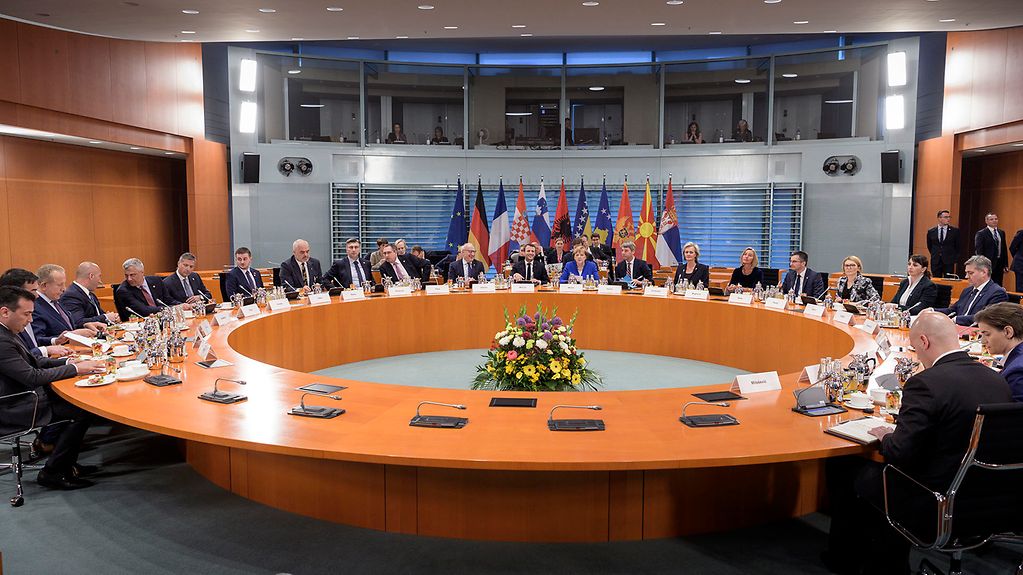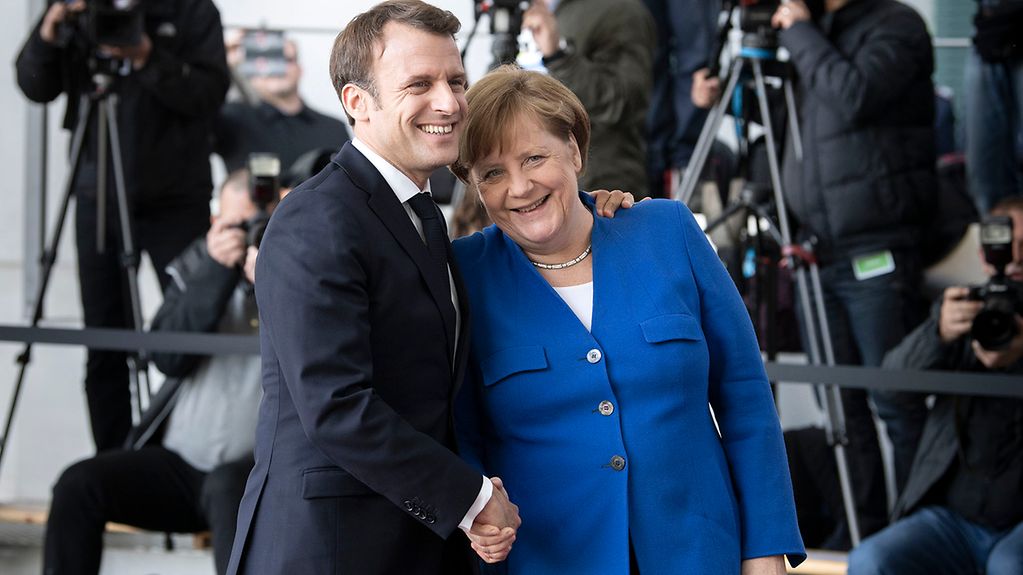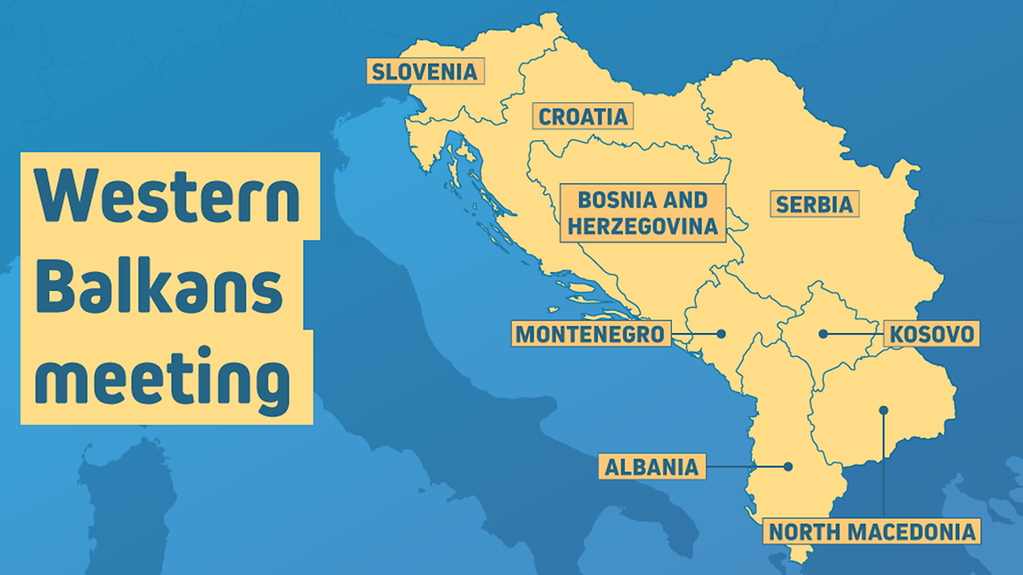Western Balkans meeting in Berlin
Fostering peace and security in order to push ahead with positive development in the region – that was the goal of the Western Balkans meeting at the Federal Chancellery. It was a joint initiative of Germany and France. Special attention was focused on relations between Serbia and Kosovo.
2 min reading time

Chancellor Angela Merkel: "The aim is to engage openly and honestly in discussion."
Photo: Bundesregierung / Bergmann
Chancellor Angela Merkel and French President Emmanuel Macron jointly hosted the meeting of the heads of state and government of the Western Balkan states in Berlin. Germany and France feel common responsibility for positive development in the region, declared Angela Merkel. This is in the best interests of Europe.
"With developments in North Macedonia we have seen extremely courageous steps, that give us hope that even long-standing conflicts can be resolved," said the Chancellor. In the discussion, one focus will be how we can support and advance relations between Serbia and Kosovo, she added.
Bilateral talks with the Chancellor
The meeting in Berlin was attended by the heads of state and government of the six Western Balkan states (Albania, Bosnia and Herzegovina, Kosovo, North Macedonia, Montenegro and Serbia) as well as the EU member states Croatia and Slovenia. The High Representative of the Union for Foreign Affairs and Security Policy Federica Mogherini was also at the meeting.
On Monday afternoon, Chancellor Angela Merkel first welcomed the Prime Minister of North Macedonia, Zoran Zaev to the Federal Chancellery for talks. This was followed by a bilateral meeting with Albania’s Prime Minister Edi Rama.

"We feel a common responsibility for positive development in the region."
Photo: Bundesregierung / Bergmann
"Engaging in open and honest discussion"
After one more meeting with French President Emmanuel Macron, the working session began with all participants. Emmanuel Macron explained that it was about stability overall in the region, and that this is a European issue.
Chancellor Angela Merkel stressed the open nature of the meeting. It is not, she said, about passing resolutions or about accession negotiations. "It is about engaging openly and honestly in discussion. The underlying idea is that the region can only develop if it does so together."

The meeting is intended to lay the foundations for further positive development in the region.
Photo: Bundesregierung
What are the Western Balkan states?
The term Western Balkans has a geographical and a political dimension. It first entered into the language of the European Union at a summit held in Vienna in 1998, and refers to the states that together make up the Balkan peninsula, that are not yet EU member states. Currently, this includes Albania along with the successor states of former Yugoslavia: Bosnia and Herzegovina, Kosovo, North Macedonia, Montenegro and Serbia. It does not include Slovenia and Croatia, which joined the European Union in 2004 and 2013 respectively.